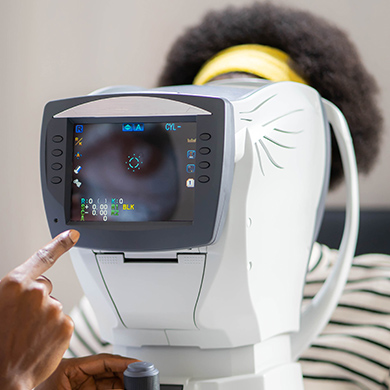
When it comes to protecting your vision, early detection of eye diseases is crucial. Thanks to advancements in optometric technology, retinal imaging has become an essential tool in identifying the earliest warning signs of many sight-threatening conditions. But what exactly is retinal imaging, and how does it benefit your eye health?
What Is Retinal Imaging?
Retinal imaging is a non-invasive diagnostic technique that captures detailed digital images of the back of your eye, specifically the retina. This technology allows optometrists to view the intricate structures of the retina, including the blood vessels, optic nerve, and macula, in remarkable detail.
The Importance of Early Detection
Many eye diseases, such as glaucoma, diabetic retinopathy, macular degeneration, and retinal detachments, develop gradually and often do not present noticeable symptoms until significant damage has occurred. By the time vision changes are noticed, these conditions may already be advanced and harder to treat. Retinal imaging provides an opportunity to catch abnormalities before you even notice a problem.
How Retinal Imaging Detects Early Signs of Disease
High-Resolution Visualization: Retinal imaging provides a clear, high-definition view of the retina’s layers, helping your eye doctor spot tiny changes or abnormalities that would be difficult to detect during a standard eye exam.
Tracking Changes Over Time: Because digital images are saved with your medical records, your optometrist can compare images from previous visits. This makes it easier to identify subtle changes and track disease progression or response to treatment.
Detection of Silent Conditions: Conditions like diabetic retinopathy, glaucoma, and age-related macular degeneration often progress without noticeable symptoms. Retinal imaging can reveal signs such as microaneurysms, blood vessel changes, or thinning of the optic nerve before symptoms appear.
Comprehensive Eye Health Assessment: Retinal imaging can also help detect other health issues such as hypertension, diabetes, or high cholesterol, which may show early signs in the retina before affecting other parts of the body.
How Often to Get a Retinal Exam
For most adults, it is recommended to have retinal imaging performed annually as part of your comprehensive eye exam. However, the ideal frequency may vary depending on your age, risk factors, or any underlying eye conditions. Your optometrist may recommend more frequent imaging if you have diabetes, a family history of eye disease, or other health concerns that affect your eyes. Always follow the advice of your eye doctor to ensure you receive the most appropriate care for your vision needs.
Protect Your Vision with Advanced Retinal Imaging
Retinal imaging has transformed the way eye doctors detect and monitor eye diseases. With the ability to reveal changes in the retina at their earliest stages, this advanced technology supports proactive care and better long-term outcomes for your vision and overall health.
If you are due for an eye exam or want to learn more about how retinal imaging can benefit you, contact Visual Health Doctors of Optometry to schedule your appointment. Visit any of our offices in Alexandria, Arlington, Ashburn, Burke, Fairfax, Falls Church, Herndon, or Woodbridge, Virginia. Contact a location nearest you, or book an appointment on our website today.










